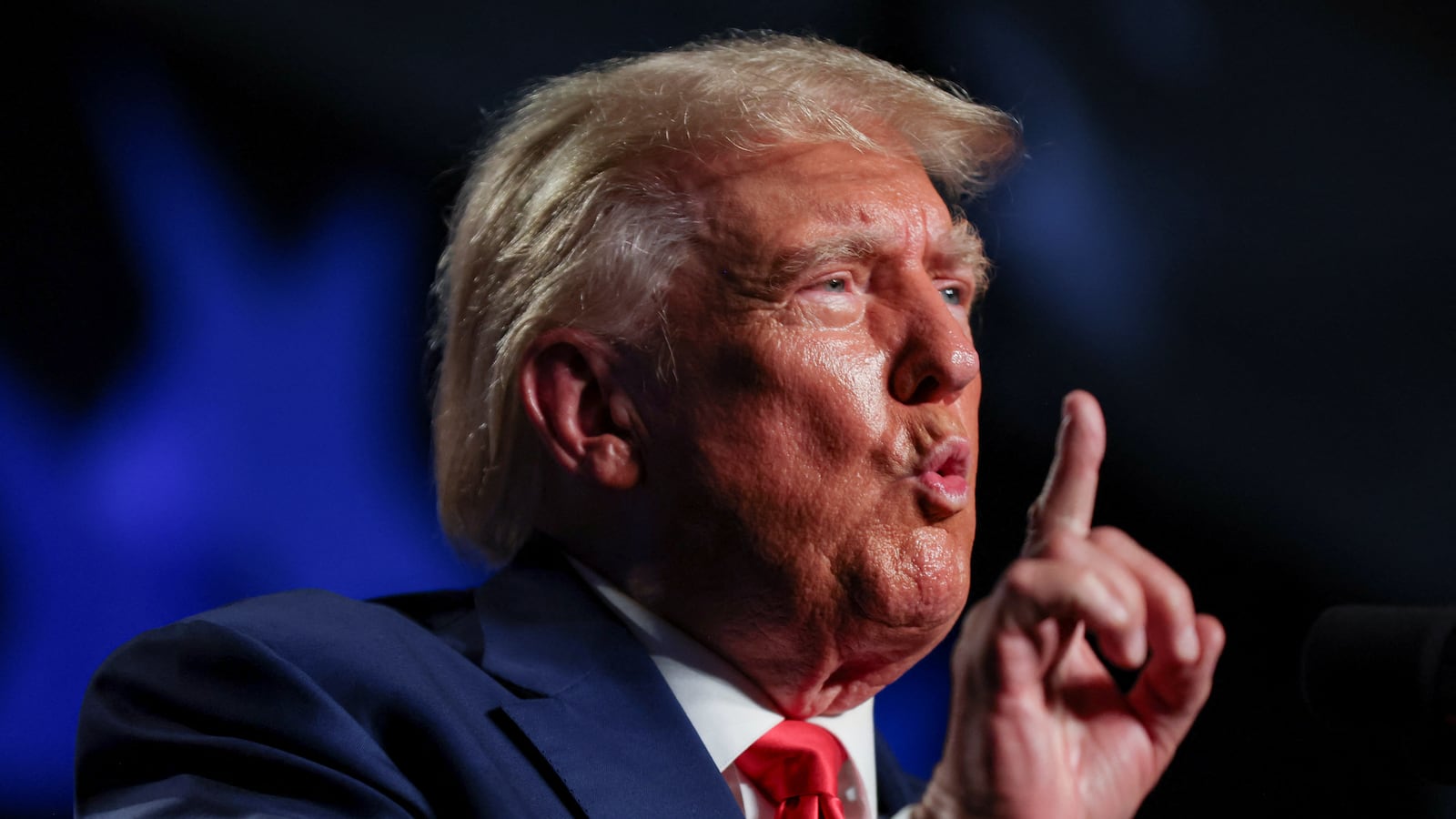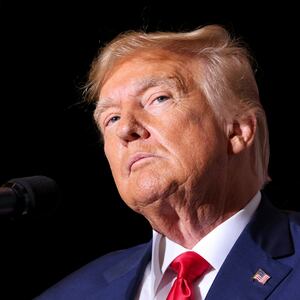Donald Trump’s lawyers provided some of their first clues on Monday as to how they’ll defend the former president in an upcoming trial over his efforts to overturn the 2020 election. The answer? It’s all just free speech.
Trump’s legal team was responding to a DOJ request for a protective order restricting how the former president could disseminate information about his case. The DOJ filed that motion after Trump made an aggressive social media post from last Friday.
“IF YOU GO AFTER ME, I’M COMING AFTER YOU!” Trump said on Truth Social.
While DOJ prosecutors suggested this order limiting what Trump could release to the public was necessary because of Trump’s history of saying things he shouldn’t say on social media about court cases, Trump’s lawyers asserted that the former president was just exercising his First Amendment rights.
On Monday, his lawyers called it “generalized political speech, not directed to this case.”
“The government does not explain how a post on a different topic, which does not include or describe sensitive information, suggests President Trump might disseminate such information in the future,” said the court filing, which was co-authored by attorneys Todd Blanche and John F. Lauro.
Trump’s lawyers went further, accusing Smith’s team of posing “the greater risk of improper disclosure, given the frequency of apparent leaks from the Special Counsel’s office.”
The D.C. indictment, filed last week, makes clear that Trump had a right—like any American—to lie about the existence of election fraud in 2020. But it lays out how the former president allegedly went much further by employing his enormous executive power to intimidate state officials in an attempt to flip election results and pressure his vice president to interrupt the certification process.
Trump allies, however, have pushed back by recasting the issue entirely as a law enforcement crackdown on Trump’s right to say the election was stolen—putting aside entirely his efforts to tamper with election results.
The court filing showed that Trump’s team is doubling down on the strategy of framing this criminal case as a First Amendment free speech issue.
“In a trial about First Amendment rights, the government seeks to restrict First Amendment rights,” his lawyers wrote.
They also described the prosecutor’s attempts to limit Trump’s ability to speak about the evidence as a “blanket gag order”—less than a day after one of them, Lauro, said it was no such thing during his appearance on a legal podcast called “For the Defense with David Oscar Markus.”
“The need to protect that information does not require a blanket gag order over all documents produced by the government,” Blanche and Lauro wrote on Monday.
The judge has yet to rule on the protective order but is expected to in the coming days—perhaps even hours. Meanwhile, Trump will also find out when his trial date is for this case on Aug. 28.
DOJ prosecutors were hoping to move to trial within three months, while Trump’s lawyers have said they’d like three years to prepare.







